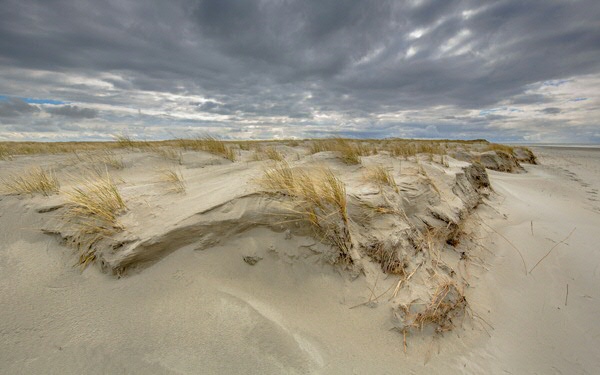Hoe kunnen we duurzaam ondernemerschap in het Noordzeegebied ondersteunen en stimuleren?
Duurzaam ondernemerschap biedt toeristische bedrijven mogelijkheden om meer winst te maken, maar zorgt er ook voor dat de natuurlijke en sociaal-culturele waarde van het unieke Waddenzeegebied wordt beschermd. Duurzaam ondernemerschap als middel om duurzame ontwikkeling uit te breiden vormt het onderliggende thema in het onderzoek van PhD-onderzoeker Hellen L. Dawo.
De Waddenzee: een Werelderfgoed
De Waddenzee is een beschermd natuurgebied in het Noordzeegebied dat zich uitstrekt over drie landen: Nederland, Duitsland en Denemarken. Het heeft een rijke biodiversiteit, een prachtig natuurlandschap en levert een essentiële bijdrage aan de gezondheid van ecosystemen in en buiten de Noordzee. Een voorbeeld van het ecologische belang van de Waddenzee is haar rol als voedingsbodem voor miljoenen trekvogels die gebruikmaken van de Oost-Atlantische en de Afrikaans-Euraziatische vliegroute. Dankzij dit unieke kenmerk is het gebied aangewezen als Werelderfgoed met Uitzonderlijke Universele Waarde. Rond de Waddenzee wonen bovendien tussen de 2 en 3,7 miljoen mensen. Daarmee is het een uitzonderlijk voorbeeld van een beschermd gebied in het Noordzeegebied.
In de afgelopen decennia zijn traditionele industrieën zoals de commerciële visserij en grootschalige landbouw afgenomen, terwijl andere industrieën, zoals toerisme en hieraan gerelateerde economische activiteiten, zijn toegenomen. Ook de verwerkende industrie in de buurt van havens is gegroeid. Ondanks deze economische ontwikkelingen heeft het Noordzeegebied nog steeds te kampen met sociaal-culturele, ecologische en economische uitdagingen.
Conservatie is belangrijk vanwege de grote waarde van de natuur en het erfgoed in het gebied. Daarom moeten industrieën als het toerisme duurzaam opereren. Ondanks deze behoefte is het moeilijk om duurzame ondernemerspraktijken te implementeren. Duurzaam ondernemen is een aanpak die de doelstellingen van conservatie en van duurzame economische ontwikkeling combineert. Het is een moeizaam proces: sociaal-culturele, ecologische en economische doelstellingen zijn binnen een bedrijf vaak strijdig met elkaar.
In het eerste van drie onderzoeken, uitgevoerd door Dawo, zijn zeven hindernissen geïdentificeerd waar toeristische en aan toerisme gerelateerde ondernemingen die duurzamer willen werken mee te maken krijgen:
- Beperkte ondersteuning van belanghebbenden
- Weinig ondersteuning van de markt
- Gebrek aan relevante vaardigheden op het gebied van duurzaam ondernemen
- Onvoldoende kennis en financiële middelen om duurzaam ondernemen te ondersteunen
- Verschillende opvattingen over wat duurzaamheid en duurzame behoeften inhouden
- Onvoldoende capaciteit
- Uitsluiting van ecologische, sociaal-culturele en sociale rijkdom
Verder onderzoek
Om duurzaam ondernemerschap verder te kunnen uitbreiden in een ecologisch en cultureel gevoelig gebied, moeten meerdere belanghebbenden hierbij worden betrokken. Een verbetering van de onderlinge communicatie tussen belanghebbenden en het midden- en kleinbedrijf in het Waddenzeegebied zou kunnen leiden tot een toename van duurzame ondernemerspraktijken. Tijdens het eerste onderzoek zijn ondernemingen geïdentificeerd die al gebruik maken van duurzame ondernemerspraktijken. Gedurende het tweede onderzoek zullen deze casussen nader worden bekeken om te zien hoe deze ondernemingen hindernissen hebben overwonnen om duurzame producten en/of diensten te creëren in deze ecologisch gevoelige omgeving.

